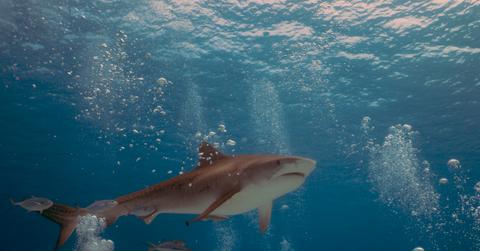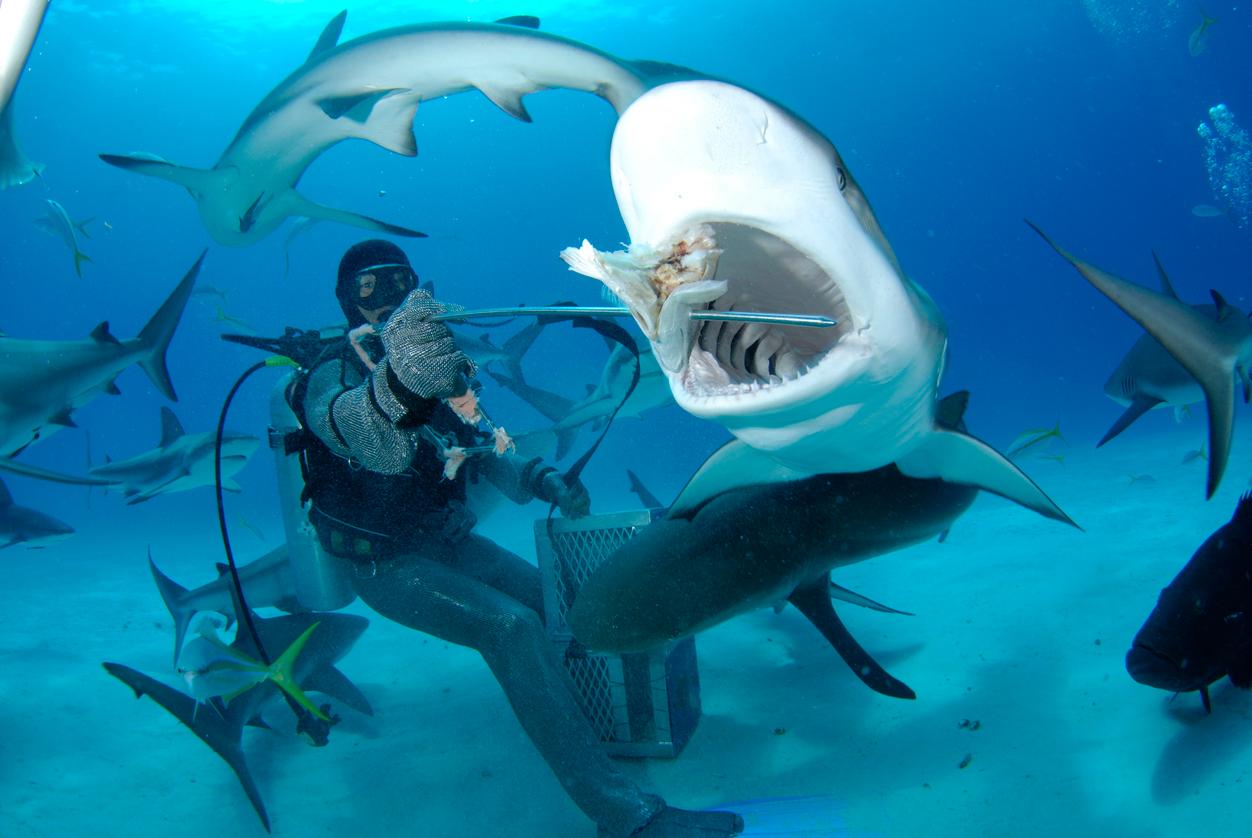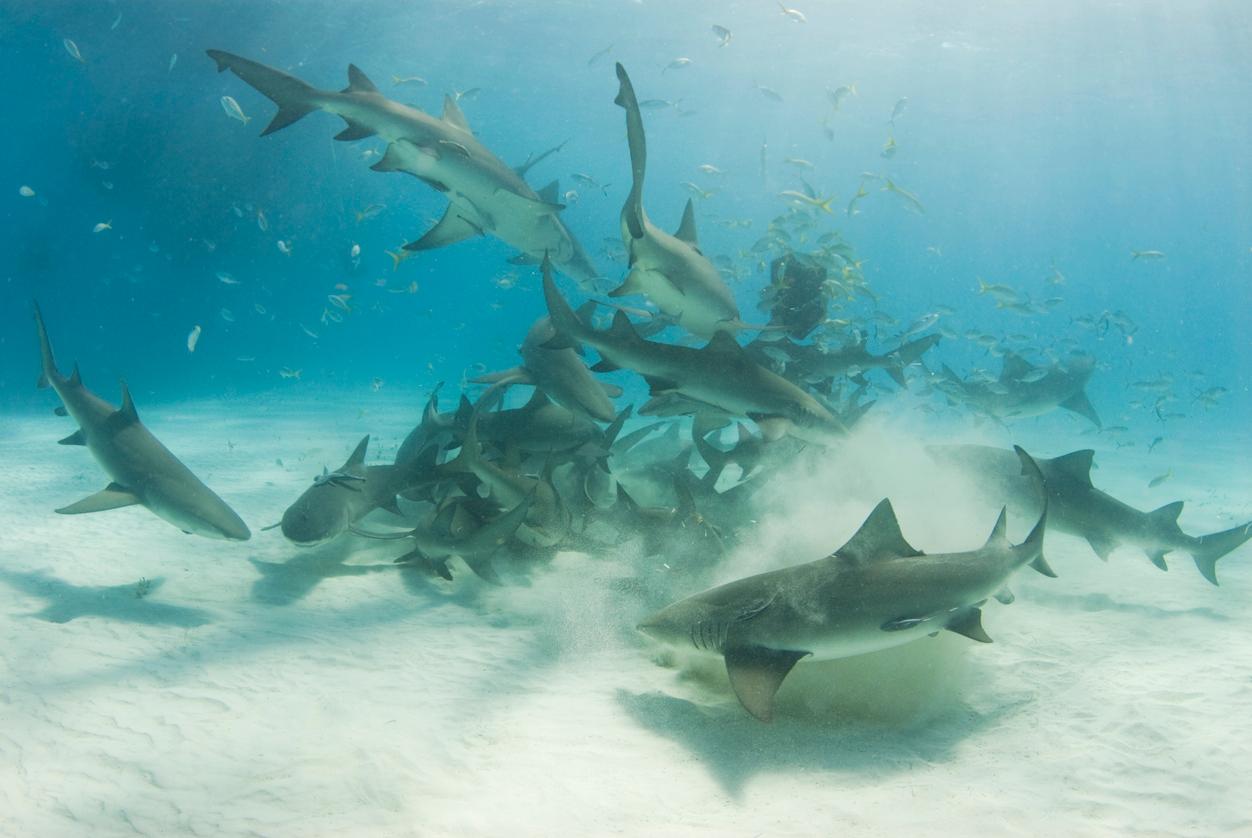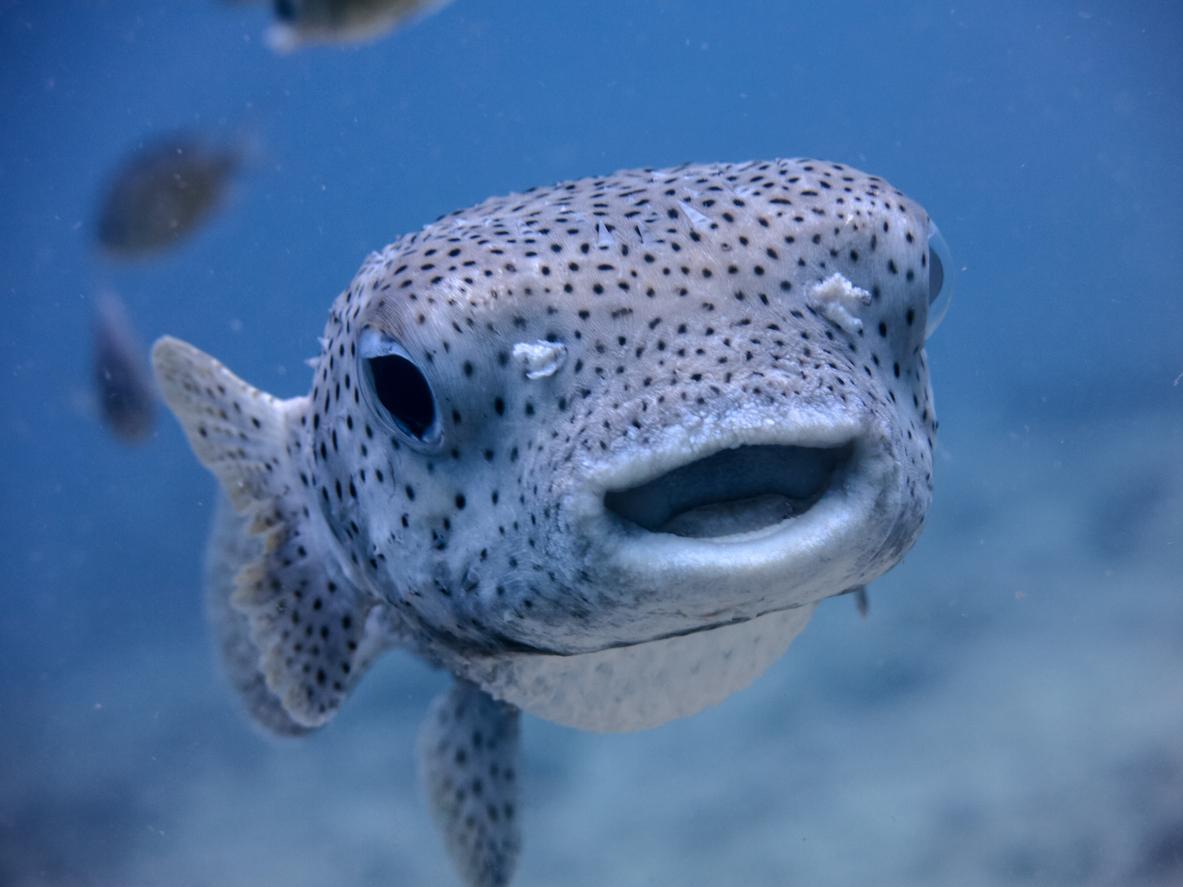Do Sharks Have Tongues? Yes, but They Might Not Look How You Would Expect
The world is full of diverse species, but there’s still a lot that we don’t know about them, including their anatomy.
Published July 3 2024, 12:11 p.m. ET

For humans, the tongue is an important organ. It helps us chew, swallow, taste food, and talk — it would be pretty hard to live without it, but maybe that’s not the case for every animal. Some animals, like giraffes, have tongues that are essential (and purple!). Other animals? Not so much.
Despite fish playing a large role in our ecosystems, you might not know a lot about them. Do sharks have tongues? To learn more about sharks, including how they eat and taste their food, keep reading.
Do sharks have tongues?

Technically, sharks do have tongues, but they probably aren’t what you’d imagine. According to the Florida Museum of Natural History, instead of having a muscular organ used to manipulate food, there’s a thick chunk of cartilage on the bottom of the fish’s mouth. This is called a basihyal.
For the most part, this cartilaginous feature is useless — it’s just the closest sharks come to having a tongue. Cookiecutter sharks are the only species known to use the basihyal, which they do so to help tear their prey up.
Without the help of a human-like tongue or basihyal, you might wonder how sharks can swallow their food. Well, thankfully, they’re pretty smart. According to BBC Wildlife Magazine, these resourceful vertebrates use the strength of their pectoral girdle — which is a part that’s similar to our shoulders — to help swallow. Sharks can move water around their mouth to aid the process, too.
Can sharks taste their food?

Despite sharks having a basihyal, these cartilaginous structures aren’t used for taste. Instead, most of them have taste receptors lining the mouth and pharynx, according to Hawaii’s Division of Aquatic Resources (DAR).
These receptors are quite important, as they help the shark decide whether or not their prey will be rejected. After all, the vertebrate’s main goal is to eat other fish. You might feel threatened or scared by them, but sharks are never actively trying to hunt humans down and eat them for dinner — it’s usually an accident.
Sharks have unique receptors called ampullae of Lorenzini that help them detect hidden prey. This trait gives them a great advantage since it allows them to sense the electric fields produced by other animals in the ocean, simplifying the hunting process.
Along with receptors, sharks have a strong sense of smell, excellent hearing, and a lateral line system, which gives them the ability to recognize disturbances and pressure.
Do fish have tongues?

Like sharks, most other fish have a basihyal. Some species have a “toothed tongue,” which is when a fish’s tongue has teeth around it — this helps them grab onto prey or even tear them apart, according to the Australian Museum. Sea lampreys, pike, mooneyes, and pickerels are just a few species known to have teeth on their tongue.
If you look inside a fish’s mouth, you might spot a tongue biter instead of an actual tongue. Tongue biters are small parasitic crustaceans that hang out on the bottom of a fish’s mouth, right where a tongue would typically be.